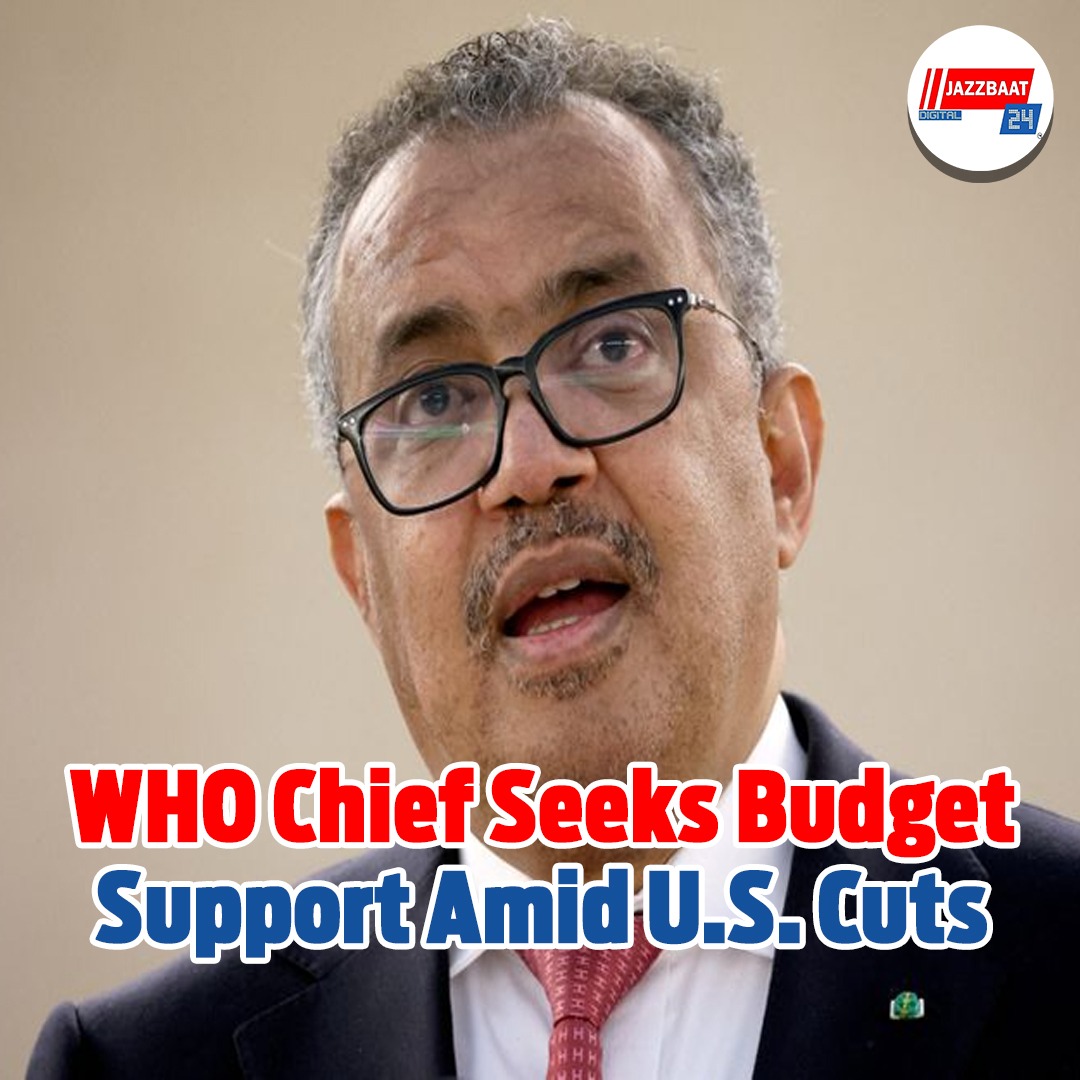
Pratiksha Ghosh
Geneva May 20 2025:The World Health Organization (WHO) is pleading with member nations to support its reduced $2.1 billion annual budget as the agency grapples with a steep drop in funding following the United States' withdrawal under former President Donald Trump.
WHO Director-General Dr. Tedros Adhanom Ghebreyesus addressed the agency’s annual World Health Assembly on Monday, calling the budget request “extremely modest,” particularly when compared to global military spending or tobacco industry advertising.
“Two-point-one billion dollars — that’s the world’s military spending every eight hours,” Tedros said. “It’s the cost of a single stealth bomber, a weapon designed to take lives.”
The funding request, he further added, also amounts to just a quarter of what the tobacco industry spends annually to promote a product known to kill.
Without directly naming the U.S., Tedros reiterated his earlier stance that Washington’s exit from WHO was a “mistake” and urged American leaders to reconsider.
The U.S., traditionally WHO’s largest donor, has withdrawn funding and declined to send a delegation to the assembly, as confirmed by a State Department spokesperson on Monday.
In response to the sharp reduction in American and other Western financial support — as many nations shift spending toward defense amid global tensions — the WHO has trimmed its two-year budget proposal by 22%. Still, a significant shortfall remains: the agency is $1.7 billion short of its target.
“We know the challenge of raising this sum in today’s world,” Tedros acknowledged. “But for an organization working in 150 countries on issues from pandemic response to nutritional guidelines, this is a minimal request.”
Experts warn that the financial strain is placing the WHO’s global mission at risk. “The organisation is in a fight for its future,” said Matthew Kavanagh, director of Georgetown University’s Center for Global Health Policy and Politics. “Millions could die unnecessarily if multilateral cooperation continues to unravel.”
The nine-day assembly is expected to see two landmark decisions,a 20% increase in mandatory contributions from member states and a long-awaited “pandemic treaty.” This treaty is designed to ensure fair access to vaccines, treatments, and tests in future pandemics — including a requirement that countries sharing virus samples receive resulting health tools, with 20% of supplies reserved for WHO distribution in low-income regions.
Despite high hopes, the treaty's enforcement could be limited. The U.S. absence raises questions about global commitment, and critics note there are no legal consequences for countries that ignore the terms.
“This could still be a milestone — proof that international health action can proceed without full U.S. backing,” Kavanagh said, noting it could mark a turning point for developing countries in the global South.
Meanwhile, the WHO is undergoing internal changes. Tedros recently announced a major reshuffle of senior staff, including the reassignment of Dr. Michael Ryan from his position as emergencies chief. These moves, alongside cost-cutting efforts, come amid a growing salary gap of over $500 million.
Outside the assembly in Geneva, opposition voices also made themselves heard. The activist group CitizenGo staged a protest against the pandemic treaty, accusing WHO of seeking to centralize control and limit individual freedoms. A banner displayed at the protest depicted Tedros and WHO supporter Bill Gates surrounded by dollar signs.
“The WHO wants more power after Covid, not accountability,” said Sebastian Lukomski, a campaigner for the group.
With the U.S. aiming to formally exit WHO by January — under a process initiated by Trump and in line with U.S. legal requirements — the organization faces an uncertain future. Still, Tedros remains firm and stated “This is a historic moment. Our decisions now will shape the world’s ability to protect health for generations to come.”